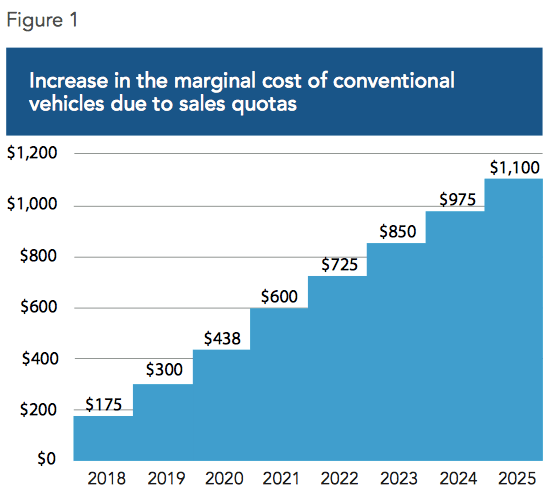Kyiv's Dilemma: Evaluating Trump's Plan To End The Ukraine War

Table of Contents
Key Components of Trump's Proposed Solution
Trump's proposed solution to the Ukraine conflict lacks a single, clearly articulated plan. However, based on his public statements and interviews, certain core tenets emerge. These often involve a strong emphasis on negotiation, potentially at the expense of Ukrainian territorial integrity, and a perceived lessening of US support for Ukraine.
- Territorial Concessions: Trump's suggestions frequently allude to the possibility of Ukraine ceding territory to Russia, potentially including Crimea and parts of the Donbas region. The exact extent of these concessions remains unclear, but they represent a significant departure from the official Ukrainian stance.
- Negotiation with Russia: Central to Trump's approach is the belief that direct negotiations with Vladimir Putin are necessary to achieve a lasting peace. This emphasis on direct talks contrasts with the current strategy of supporting Ukraine's military efforts and applying international pressure on Russia.
- Reduced US Support: Critics argue that Trump's rhetoric suggests a reduced US role in supporting Ukraine, potentially jeopardizing the flow of military aid and financial assistance. This raises concerns about Ukraine's ability to defend itself against further Russian aggression.
- Security Guarantees: The nature of any potential security guarantees offered to Ukraine under a Trump-brokered deal remains largely unspecified. However, the lack of detail raises questions about their enforceability and effectiveness.
Potential Benefits of Trump's Plan (from Kyiv's Perspective)
While highly controversial, even a critical analysis of Trump's Ukraine plan must acknowledge some potentially perceived benefits from Kyiv's standpoint, however unlikely or problematic:
- Quicker End to the Conflict: A negotiated settlement, even at a cost, might offer a quicker end to the bloodshed than prolonged military conflict. However, this assumes a genuine commitment from Russia, which is highly questionable.
- Avoidance of Further Territorial Losses: Depending on the precise terms of any agreement, a negotiated settlement could theoretically prevent further territorial losses, although it likely involves accepting past losses.
- Reduction in Human Casualties: A cessation of hostilities, achieved through negotiation, could lead to a reduction in military and civilian casualties. However, this depends on the agreement's enforcement and Russia's adherence to it.
Significant Drawbacks and Risks of Trump's Plan
A comprehensive assessment of Trump's Ukraine plan reveals significant drawbacks and potential risks for Ukraine:
- Territorial Concessions and Loss of Sovereignty: The most significant risk is the potential loss of Ukrainian territory, undermining its sovereignty and territorial integrity. This sets a dangerous precedent for future conflicts and could embolden other aggressors.
- Unrealistic Expectations of Russian Compliance: History demonstrates Russia's disregard for international agreements and treaties when it serves its interests. Expecting genuine compliance from Russia under a Trump-brokered deal is highly unrealistic.
- Weakening of NATO and Undermining Western Alliances: Trump's approach could weaken the resolve of NATO and other Western allies, creating uncertainty and division among Ukraine's supporters.
- Setting a Dangerous Precedent for Future Conflicts (Appeasement): Ceding territory to an aggressor through negotiation can be interpreted as appeasement, potentially encouraging further aggression from Russia and other revisionist powers.
- Potential Internal Political Instability: Accepting significant concessions could lead to internal political instability in Ukraine, with widespread public dissent and potential challenges to the government.
Alternative Approaches and International Perspectives
Several alternative approaches to resolving the Ukraine conflict exist, contrasting sharply with Trump's proposed solution:
- EU's Stance: The European Union advocates for a combination of strong military support for Ukraine and a commitment to eventual negotiations only under conditions favorable to Ukraine. This approach stresses maintaining Ukraine's sovereignty and territorial integrity.
- NATO's Position: NATO allies firmly support Ukraine's right to self-determination and territorial integrity, providing military and financial assistance to bolster its defense capabilities. Negotiation is seen as a possibility only after significant progress in restoring Ukraine’s territorial control.
- Global Power Influence: China's role remains complex. While advocating for peace talks, it hasn't actively condemned Russia’s aggression, making its influence on the conflict unpredictable and potentially hindering a resolution beneficial to Ukraine.
The Importance of Ukrainian Sovereignty and Self-Determination
Ultimately, any viable solution to the Ukraine conflict must prioritize Ukrainian sovereignty and self-determination. Ukraine's right to decide its own future without external coercion is paramount, and any plan that compromises this fundamental right risks long-term instability and increased conflict.
Public Opinion and Domestic Political Ramifications in Ukraine
The potential domestic ramifications of accepting or rejecting Trump's plan within Ukraine are substantial:
- Public Opinion: Public opinion polls in Ukraine consistently demonstrate strong support for defending national territory and regaining lost lands. Acceptance of territorial concessions under Trump's plan could be deeply unpopular and lead to significant domestic unrest.
- Political Fallout: The Ukrainian government faces intense pressure to protect national interests. Accepting Trump’s plan could trigger a political crisis, potentially leading to the collapse of the government or widespread civil unrest.
- Media Influence: Ukrainian media plays a critical role in shaping public perception. The way they portray and analyze Trump’s Ukraine plan will strongly influence public opinion and the government's response.
Conclusion
Trump's Ukraine plan, while offering the potential for a quicker end to hostilities, presents substantial risks and costs for Kyiv, including the loss of territory and sovereignty, and undermining Western alliances. The plan's feasibility is highly questionable, given Russia's track record and the lack of realistic expectations for their compliance. Any successful resolution requires a comprehensive approach that respects Ukraine's sovereignty, territorial integrity, and self-determination. Informed discussion and critical analysis of all proposals regarding the Ukraine conflict are essential. Continue researching Trump's Ukraine plan and its implications to form your own informed opinion. A sustainable solution that upholds Ukraine’s rights is paramount.

Featured Posts
-
 Technical Glitch Forces Blue Origin To Postpone Rocket Launch
Apr 22, 2025
Technical Glitch Forces Blue Origin To Postpone Rocket Launch
Apr 22, 2025 -
 Resistance Grows Car Dealers Push Back Against Electric Vehicle Quotas
Apr 22, 2025
Resistance Grows Car Dealers Push Back Against Electric Vehicle Quotas
Apr 22, 2025 -
 Avoiding Trump Tariffs The Tik Tok Approach
Apr 22, 2025
Avoiding Trump Tariffs The Tik Tok Approach
Apr 22, 2025 -
 Analysis The Anti Trump Protests Sweeping The Us
Apr 22, 2025
Analysis The Anti Trump Protests Sweeping The Us
Apr 22, 2025 -
 T Mobile Data Breaches Result In 16 Million Fine A Comprehensive Overview
Apr 22, 2025
T Mobile Data Breaches Result In 16 Million Fine A Comprehensive Overview
Apr 22, 2025
